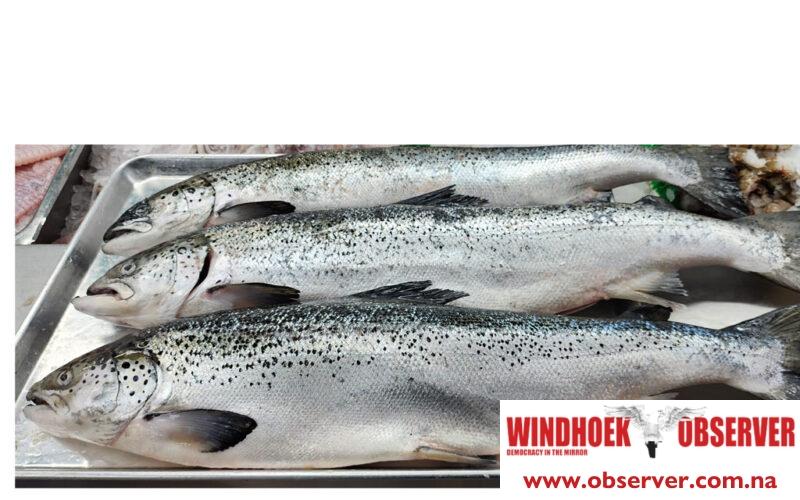Niël Terblanché
In a development that could significantly reshape the aquaculture landscape of southern Namibia, Oshindjalala Fishing (Pty) Ltd has announced plans to establish an offshore Atlantic Salmon Fish Farm near the harbour town of Lüderitz.
The company is currently in the process of applying for an Environmental Clearance Certificate (ECC) required to eventually realise the project.
The ECC application is evidence of the company’s commitment to sustainable development and environmental stewardship.
The proposed venture aims to introduce Atlantic salmon farming to Namibian waters through a two-step production process. Initially, salmon will be grown to a weight of approximately one kilogramme using either an onshore facility or a standard fish farm located in a protected area.
Subsequently, the fish will be transferred offshore to be fed and nurtured until they weigh approximately five kilogrammes using a specialized offshore fish farm design.
This innovative approach seeks to leverage the conducive maritime conditions off the coast of Lüderitz while minimizing the impact on the environment.
Oshindjalala Fishing’s proposal outlines an ambitious offshore system designed to support multiple salmon generations, with the capacity for two cages per generation.
The farm is projected to produce a total biomass of 11,500 tons, adhering to the industry standard of 25 kilogrammes per cubic metre of water for open net systems.
The design parameters for the farm include a farming volume of 460,000 cubic metres, divided into six cages each with a volume of 76,800 cubic metres, among other technical specifications tailored to ensure the farm’s resilience against varying sea conditions.
Recognizing the critical importance of environmental conservation, the project is listed under the Environmental Management Act, 2007 (Act No. 7 of 2007) and the EIA Regulations 2012, necessitating an ECC before any activities commence.
Oshindjalala Fishing has engaged Risk-Based Solutions (RBS) CC, with Dr Sindila Mwiya leading as the Environmental Assessment Practitioner (EAP), to conduct comprehensive Environmental Assessment studies.
These studies will encompass Environmental Impact Assessment (EIA) and Environmental Management Plan (EMP) reports to support the ECC application.
In line with regulatory requirements and the company’s commitment to transparency and community engagement, a public meeting has been organized in Lüderitz.
Interested and affected parties (I&APs) are invited to participate, register, and submit written comments, objections, or inputs regarding the proposed fish farming project.
The meeting is an important platform for stakeholders to express their views, seek clarifications, and contribute to the project’s development in a manner that ensures environmental sustainability and community benefits.
The Background Information Document (BID) detailing the project’s scope, potential impacts, and mitigation measures is available upon request for those who register for the meeting.
This initiative not only marks a significant step towards diversifying Namibia’s aquaculture sector but also underscores the potential for sustainable marine resource management in the region.
As Oshindjalala Fishing moves forward with its plans, the public’s participation in the upcoming meeting will be instrumental in shaping a project that balances economic ambitions with environmental sustainability and social responsibility.




